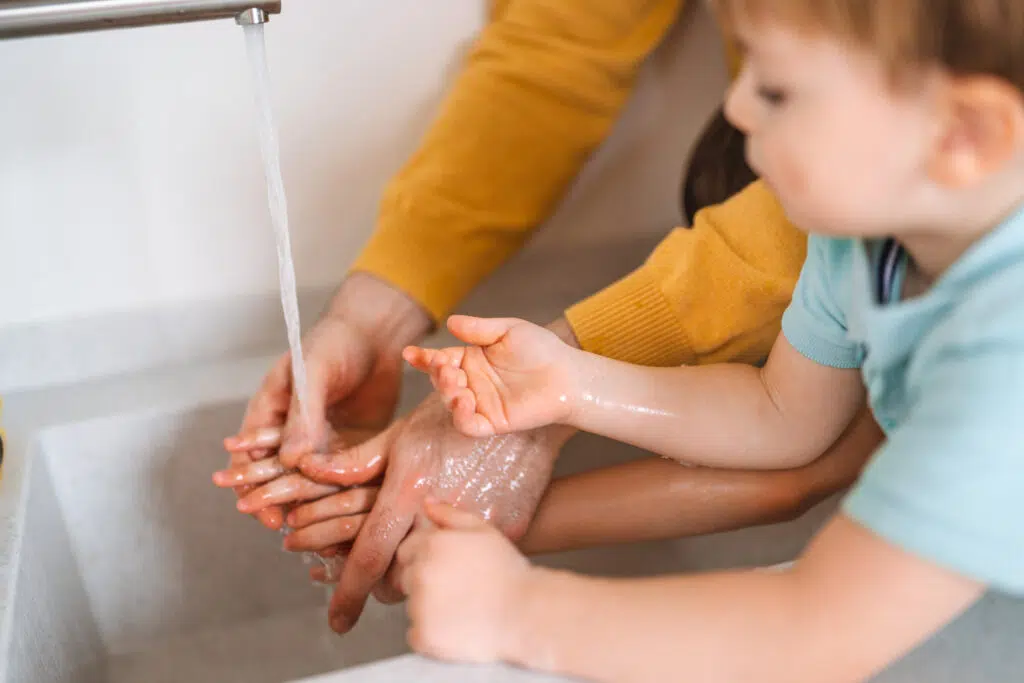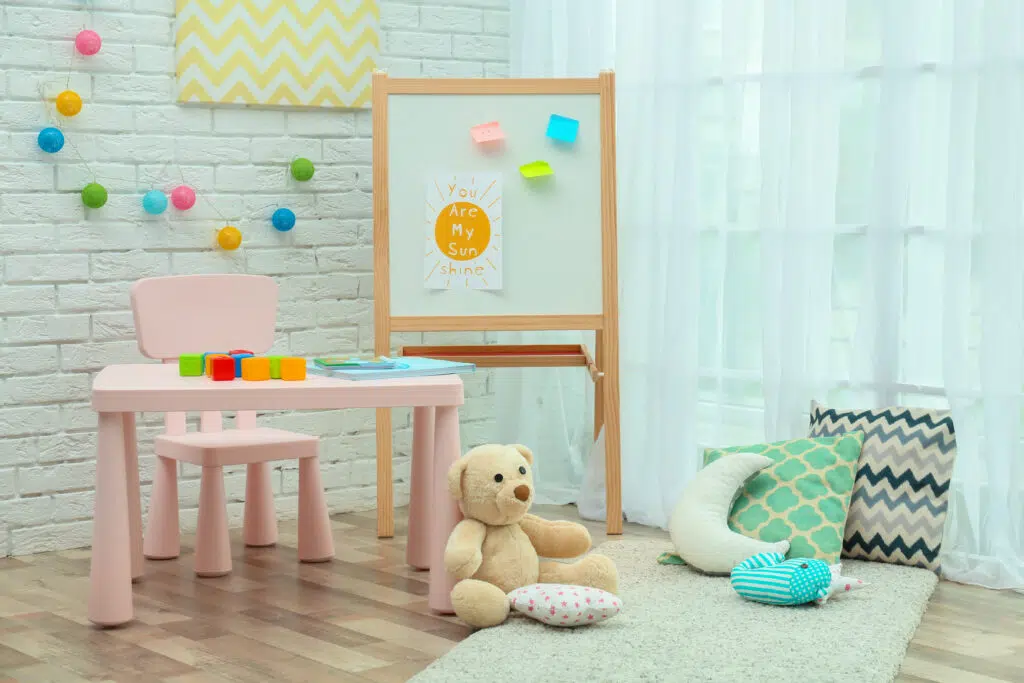Most parents want to instill healthy habits into their children at a young age. This helps ensure that they will have happy, healthy, and successful lives. As a parent, it is difficult to decide what things you should focus on. Here are 10 things I’m doing to help my children build healthy habits.
1. Establish a Consistent Routine

Having a consistent routine in place for your children is key. This provides them with stability and promotes healthy habits. Something we have is a consistent bedtime routine. Every night, we all go upstairs together. I bathe my daughter while my husband plays with my son. Then, my son gets in the bath while my daughter has some playtime and a bedtime story. Everybody brushes their teeth and I lay my son down while my husband tucks my daughter in. Doing this ensures everyone has a good night’s sleep. It also helps provide the kids with structure, which they need.
2. Encourage Balanced Nutrition

Although I have a picky three-year-old, it’s good to continue to encourage balanced nutrition. Even if you know they won’t eat something, you should still offer it. There might be a day when they finally decide to give it a try and that’s a parenting win! If you have a picky eater like I do, you can consider blending up fruits and veggies into other things they like. For instance, my daughter loves smoothies because I have one most mornings. I am able to sneak vital nutrients into her smoothies and I talk to her about the ingredients. You can also find ways to involve your kids in meal planning and grocery shopping, which can help encourage balanced nutrition as well.
3. Make Physical Activity a Priority

Movement is crucial for a child’s physical and mental health. On days when the weather doesn’t permit outside time, we find some fun videos on YouTube (Cosmic Kids Yoga is a great resource). As your kids get older, you can also encourage them to participate in organized sports or dance classes. All of these activities help reduce screen time and place an emphasis on being active, which is a habit they can carry throughout their life.
4. Teach the Importance of Hydration

We don’t typically allow juice because it’s packed full of sugar and doesn’t really hydrate. For both of our kids, we encouraged drinking water at a young age and didn’t introduce anything outside of water or milk for a long time. If you have a child that doesn’t like water, you can try to make it more appealing by doing fruit infusions. You can also make it fun by setting hydration goals for the day and letting them color in charts. In the long run, this will teach them to listen to their body’s thirst cues and adopt healthy habits for hydration.
5. Foster a Love for Reading and Learning

Books are something we introduce to our children early on. Even as infants, it is important to start reading to your child. It can not only foster a love for reading but it can also help with early language development. We created a cozy reading space in both of our children’s rooms as well as a cozy reading corner in our office space. This helps us encourage them to sit down and enjoy a book throughout the day. We also begin and end the day with a book. When it comes to healthy habits, this will allow them to know the importance of unplugging and just enjoying a story.
6. Practice Good Hygiene Together

This goes hand in hand with establishing routines. Good hygiene should be part of your daily life. So, do things like wash your hands with your children and show them the proper way to ensure their hands are clean. You should always encourage regular bathing and use positive reinforcement to help push consistent hygiene routines. Doing these things with them will help them carry healthy habits throughout their lives.
7. Promote Emotional Well-Being

Mental health is something that many people weren’t taught to look after as children, but it is something my kids will know about. You should encourage your children to speak openly about their feelings. At the same time, you should provide them with helpful coping mechanisms to help them deal with those feelings. We take deep breaths, dance/shake it out, and find ways to calm down when my child gets angry. You can also promote emotional well-being by displaying positive behavior, such as active listening and showing empathy for their problems.
8. Teach Money Management Early

Another thing I wish I’d learned early on is how to manage my money. Although my kids are too young for this now, we plan to use an allowance system to introduce the concept of earning money as well as saving and spending. You can use this to encourage your kids to save for a goal, like a specific toy or book. There are a ton of games and apps that can help you introduce more complex concepts like budgeting as well. Ultimately, teaching them about money management early on will help them decipher between needs and wants and lead to them being better with their money as adults.
9. Lead by Example with Healthy Screen Time Habits

I’m guilty of being in front of a screen too much throughout the week. It’s a good idea to set boundaries for screen usage for the entire family. Set tech-free zones in your house (like at the table or in bedrooms). You can also use educational apps and programs to balance entertainment. Better yet, put the screens down and replace them with creative or physical activities.
10. Make Healthy Habits Fun and Rewarding

Positive reinforcement will help you instill healthy habits in your children. Some great tools are charts or stickers that can help them track these healthy habits. When they hit a milestone, you can celebrate with small, but meaningful rewards. This can help you turn chores and routines into enjoyable games. In the end, it will help them become goal-oriented and establish great habits they’ll carry with them into adulthood.
Building Habits for a Lifetime

It’s never too early to start instilling healthy habits into your children. As a parent, it’s key to be patient and consistent. You should also lead by example and show them that these good habits pay off in multiple ways. Talk to them about how these small steps can have lifelong benefits. Don’t forget to celebrate your child and the progress they’ve made and always remain supportive.